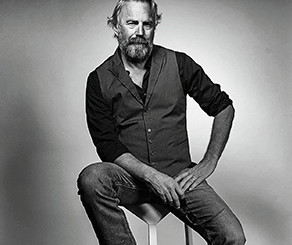“Remembering Graham Greene: A Master of Literary Suspense”
Graham Greene, Groundbreaking First Nations Actor of Stage and Screen, Dies at 73
Graham Greene, the celebrated Canadian First Nations actor known for his grounded performances and subtle wit, has died at the age of 73. Best known internationally for his role as Kicking Bird in Dances With Wolves (1990), Greene brought a quiet strength, dry humor, and undeniable authenticity to a career that spanned over four decades and helped reshape Indigenous representation in film and television.
Though Dances With Wolves was hailed by some as a revisionist western, its most genuinely progressive choice was casting Native American and First Nations actors in prominent roles, with significant portions of dialogue spoken in Lakota. Greene’s performance stood out as the spiritual center of the film. Playing the Sioux holy man who gradually comes to trust a white Union lieutenant (played by Kevin Costner), Greene imbued the role with dignity and emotional depth, transcending the film’s more sentimental elements.
Yet his casting nearly didn’t happen. Greene recalled that director Kevin Costner initially passed on him until casting director Elisabeth Leustig intervened. “Elisabeth and the girls ganged up on Kevin,” Greene once said. “They said, ‘This guy’s right for the part.’”
Learning the Lakota dialogue proved a challenge. “I had no idea what I was saying and I had to learn it phonetically,” he told True West magazine in 2021. “I’d be running 10 miles a day with my headphones on, mumbling away in Lakota. People thought I was crazy.”
Greene, an Oneida born in Ohsweken, Ontario, and raised on the Six Nations Reserve, began his acting career in the 1970s after a string of blue-collar jobs and a chance encounter with the theatre. He studied at the Centre for Indigenous Theatre in Toronto in 1974, and began working on stage before moving into film and television.
His breakout Oscar nomination for Dances With Wolves—one of 12 the film received—came while he was starring in an Ottawa stage production of Dry Lips Oughta Move to Kapuskasing by Tomson Highway. When the theatre marquee was updated to read “Starring Oscar Nominee Graham Greene,” he demanded it be removed. “Take it down,” he said. “It’s not about me.”
That mix of humility and resolve would define Greene’s approach to his career. He continued to build a steady body of work through the 1990s and beyond, appearing in Thunderheart (1992), Maverick (1994), Die Hard With a Vengeance (1995), The Green Mile (1999), and Transamerica (2005). He played a tribal elder in The Twilight Saga: New Moon (2009), a judge in Molly’s Game (2017), and a tribal police chief in Wind River (2017).
Greene never shied away from criticizing the industry’s limited view of Indigenous characters. “I’m tired of being mystical and stoic,” he said in 1992. Early on, he had reluctantly taken stereotypical roles, forced to adopt the mannerisms casting directors expected. “They’d say, ‘Don’t smile. Be stoic. Grunt a lot.’ And you’d go along with it to get your foot in the door.”
Even after his Oscar nomination, he faced bias. Director Tony Scott refused to cast him in Crimson Tide (1995), saying, “I can’t see a Native American on a sub.” Greene coolly replied that four of his uncles had served on submarines, then walked out. “To hell with you,” he later said of the experience. “I’m not gonna chase you around for a role.”
Still, he preferred to avoid the spotlight when it came to politics. “I’m not a big political animal,” he told the Orlando Sentinel. “I’ve got too much trouble worrying about my mortgage and how to run my fax machine.”
In later years, Greene embraced more complex characters, especially villains. He relished playing Malachi Strand in the TV series Longmire (2014–17), and a shape-shifting casino boss in Goliath (2019). “Being nice all the time—it’s boring,” he once said.
More recently, he appeared in Taika Waititi’s Reservation Dogs and HBO’s acclaimed The Last of Us (both 2023), and in the horror-comedy Seeds (2024), playing a fictionalized version of himself as a true-crime host turned spirit guide. The film’s director, Kaniehtiio Horn, remembered first seeing Greene in the 1991 film Clearcut. “He was one of the first roles where we could actually cheer for the Indigenous character,” she said. “It was cathartic—for a lot of Indigenous people.”
In June 2025, Greene was awarded the Governor General’s Performing Arts Award for lifetime artistic achievement in Canada.
Reflecting on his long career, Greene offered advice to young actors: “Start with theatre. You’ve got to learn discipline or you won’t last long. They ask, ‘How did you last this long, Mr. Greene—40-some years?’ And I say, ‘I’ve got a thick skin and a hard head.’”
Graham Greene is survived by his wife, actress Hilary Blackmore, and a daughter, Lilly, from a previous relationship.
Graham Greene, actor, born 22 June 1952; died 1 September 2025


